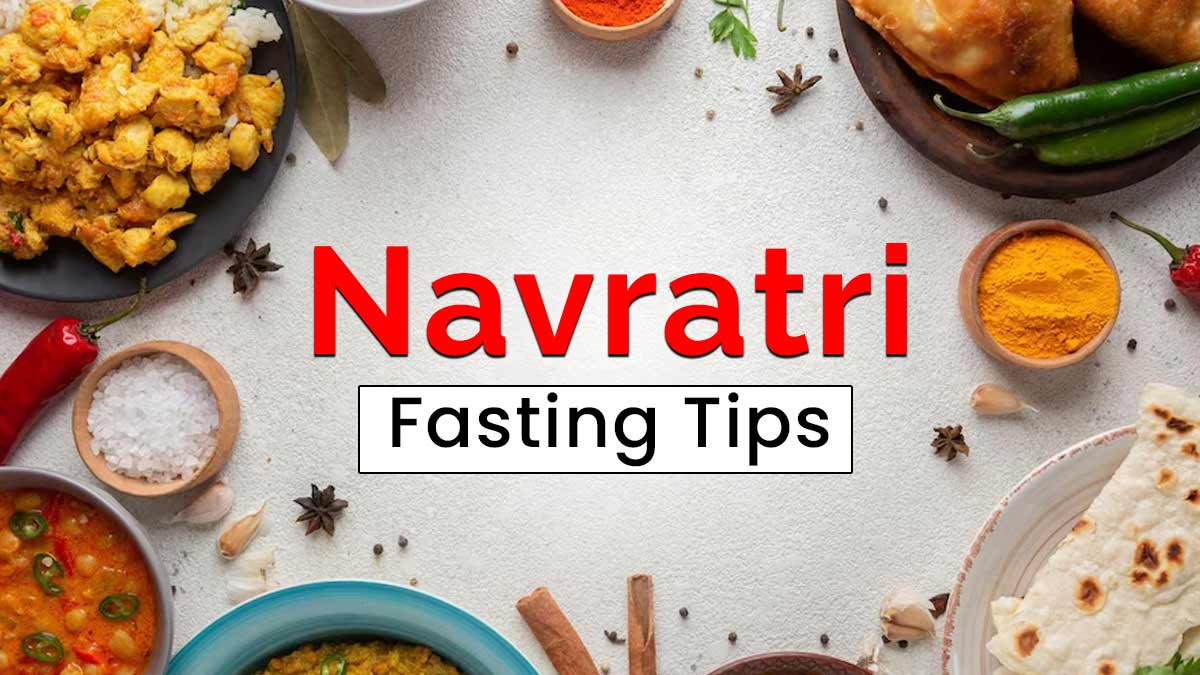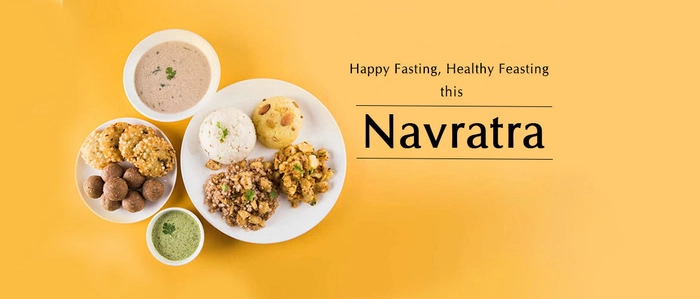Navratri, one of the most revered festivals in India, is a celebration of the victory of good over evil. Spanning nine nights, Navratri honors the divine feminine energy, or Shakti, in its various forms, including Durga, Lakshmi, and Saraswati. Beyond the religious and spiritual significance, Navratri is also a time to rejuvenate our bodies and minds through fasting.
Spiritual Importance of Navratri
Navratri represents the journey of the soul from darkness to light. Each day is dedicated to different incarnations of the goddess, symbolizing various attributes such as courage, wealth, and wisdom. By observing fasts during this period, devotees not only honor the goddess but also aim to purify their minds, bodies, and souls. The rituals and fasts during Navratri are designed to help one connect with their inner self, offering an opportunity for reflection and spiritual growth.
Ayurvedic Perspective on Fasting
In Ayurveda, fasting during seasonal transitions helps balance the body’s doshas (Vata, Pitta, and Kapha). Navratri falls at a time when the shift from monsoon to autumn can cause imbalances, making it an ideal moment to adopt fasting and light eating patterns. Foods commonly consumed during Navratri, like fruits, nuts, and certain grains, help cleanse and rejuvenate the body by stoking the digestive fire (Agni) and eliminating toxins (Ama).
How Navratri Fasting Promotes Detoxification and Health

Fasting is not only a spiritual practice but also a scientifically-backed way to detoxify the body. Here’s how it can benefit your health:
1. Cleanses the Body: Fasting gives your digestive system a much-needed break. By avoiding heavy foods, the body can focus on flushing out accumulated toxins. Lighter meals during Navratri fasts, such as fruits, vegetables, and nuts, support this natural detox process.
2. Speeds Up Metabolism: The foods consumed during fasting—like amaranth, buckwheat, and fruits—are low in calories yet rich in nutrients. This helps in speeding up metabolism while nourishing the body with essential vitamins and minerals.
3. Improves Digestion: Resting the digestive system aids in better digestion post-fasting. As the body resets itself, digestion becomes more efficient, which in turn supports overall health and energy levels.
4. Promotes Mental Clarity: Fasting combined with meditation and prayer helps detox the mind, improving focus and reducing stress. This mental clarity is one of the major benefits of observing Navratri fasts.
5. Helps in Weight Management: A diet rich in fruits, vegetables, and nuts during fasting provides the necessary fiber, vitamins, and nutrients while keeping calories low. This can result in natural weight loss and detoxification, giving the body a break from processed and fatty foods.
6. Regulates Blood Sugar: Eating small, balanced meals during the fast—like nuts, dairy, and light grains—helps regulate blood sugar levels, keeping energy stable throughout the day. This avoids insulin spikes and promotes better glucose management.
7. Rehydrates the Body and Nourishes Skin: Increased water intake and a focus on hydrating fruits help keep the body well-hydrated, which in turn flushes out toxins, leaving the skin glowing and refreshed.
8. Supports Heart Health: The plant-based, antioxidant-rich foods consumed during Navratri fasting benefit heart health by reducing cholesterol and improving blood circulation. It helps detox the cardiovascular system as well.
How to Fast Effectively for Detoxification
Fasting, if done correctly, can be a powerful way to detox and boost health. To ensure a safe and beneficial fasting experience during Navratri:
-
Stay hydrated by drinking plenty of water and natural drinks like coconut water.
-
Eat light, nutritious meals that are easy to digest, such as fruits, nuts, and yogurt.
-
Avoid fried or processed foods, and focus on boiled, steamed, or raw food preparations.
-
Include foods rich in fiber and antioxidants to enhance the detoxification process.
During fasting, Ayurveda recommends light and easily digestible foods like fruits, nuts, and certain grains. This helps restore digestive fire (Agni) and eliminate toxins (Ama), which accumulate due to poor eating habits.
Health Benefits of Navratri Fasting
Fasting during Navratri has multiple health benefits that go beyond religious rituals. Here are some notable advantages:
1. Detoxification: Fasting helps cleanse the body by allowing the digestive system to rest. By consuming lighter meals, the body gets a chance to eliminate toxins accumulated from regular eating patterns, leaving you feeling light and energized.
2. Boosts Metabolism: Eating light meals like fruits, vegetables, and grains like buckwheat and amaranth can help in boosting metabolism. These foods are rich in nutrients and low in calories, ensuring your body receives essential nourishment while fasting.
3. Improves Digestion: Navratri fasting aids in improving digestion by resting the digestive system. Since the digestive fire is stoked during the fasting period, it prepares your body to handle regular meals more efficiently post-fasting.
4. Mental Clarity and Focus: Fasting also has mental health benefits. It can enhance focus, mental clarity, and emotional well-being. Since Navratri is a period of devotion, fasting combined with prayers and meditation offers spiritual peace and helps reduce stress.
5. Weight Management: Since the diet during Navratri primarily consists of fruits, vegetables, and nuts, it is low in calories and high in fiber. This helps in natural weight loss, providing a break from fatty and processed foods that we often consume.
6. Balances Blood Sugar Levels: Controlled fasting can help balance blood sugar levels, especially when coupled with nutrient-rich foods like nuts, milk, and gluten-free grains. It prevents spikes in insulin and helps regulate energy levels.
7. Hydration and Skin Health: The increased consumption of water and fruits keeps the body hydrated. This leads to glowing skin, as the body flushes out toxins. Proper hydration also improves overall energy levels and prevents fatigue.
8. Heart Health: Fasting during Navratri can contribute to better heart health by reducing cholesterol levels and improving blood circulation. A plant-based diet rich in fiber and antioxidants benefits cardiovascular health.
How to Fast Safely During Navratri

While fasting has many health benefits, it’s essential to approach it with care:
- Stay hydrated by drinking water, coconut water, or herbal teas.
- Eat small, nutritious meals throughout the day to maintain energy levels.
- Avoid fried foods and opt for steamed or boiled preparations.
- Include fruits, vegetables, nuts, and seeds to ensure your body gets essential nutrients.
Conclusion
Navratri is not just about abstaining from food; it is a holistic practice that nourishes the mind, body, and soul. By observing fasts during Navratri, you cleanse your body, reset your digestive system, and align yourself with nature. Whether you're looking to connect with your spiritual side or simply improve your health, fasting during these nine auspicious days offers immense physical and emotional benefits. May this Navratri bring health, happiness, and spiritual fulfillment to all who observe it!

